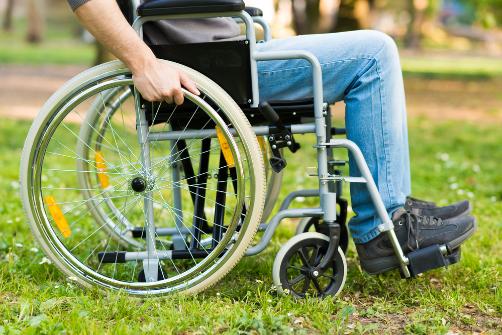Although no two people with MS have exactly the same symptoms, certain issues are more common for women. These include:
A tingling, pins-and-needles sensation is the first sign of nerve damage in MS and usually happens on one side of the body.
Many women report that their MS symptoms get worse around the time of their menstrual periods. Studies also show that periods tend to be irregular after an MS diagnosis.
Fatigue
Fatigue is a common and early symptom of MS. It can affect people in different ways and may come and go. It can be triggered by exercise, hot weather or illness. It can also occur if you are not getting enough sleep or are taking medication for other conditions. It can become more noticeable as your condition worsens and it can also get a lot worse at times of hormonal changes such as during puberty, pregnancy or menopause.
The fatigue of MS can sometimes make it hard to complete everyday tasks. It can also lead to mood changes such as depression. People often describe this as a feeling of overwhelming tiredness that makes it hard to think, talk and walk. It can be a symptom that is not always noticed or talked about by family and friends, but can have a significant impact on a person’s quality of life.
A tingling or pins-and-needles sensation is often one of the first signs of nerve damage from MS. It usually happens in the arms or legs and usually affects one side of the body more than the other. It can be a reminder that you have MS and might trigger other symptoms, such as muscle spasms.
Women with RRMS are up to three times more likely to experience MS than men, and it can be particularly difficult for them to manage their MS at times of hormonal change. Many women report that their MS symptoms relapse during menstruation, pregnancy or menopause. Research has shown that estrogen and progesterone have a positive effect on the immune system and this can reduce MS relapse rates, especially during the third trimester of pregnancy.
Muscle Spasms
Bladder and bowel problems are common with MS, including frequent needing to pee or incontinence. Sometimes, you may have bowel spasms that cause pain or a feeling of incomplete emptying (dyssey). You might also find it hard to move your bowels because of muscle weakness and constipation. You might also have a problem chewing or swallowing. This is called dysphagia. You may also have a problem with speech that sounds slurred or difficult to understand (dysarthria).
Back spasms can be a symptom of MS, as well as other conditions like gallstones and ankylosing spondylitis. Some back spasms “radiate” and affect other parts of the body, such as your legs or hips. The pain can last for a few seconds to half an hour or more.
Muscle spasms are common in people with MS. They can be triggered by staying in the same position for long periods of time, such as when you’re at work or on a plane ride, and by heat and humidity. They can also be a symptom of a condition that causes your muscles to tighten up without you even knowing it, called spasticity.
Many women report that their symptoms get worse around the time of their menstrual period. Studies have shown that it’s probably due to the rise of hormones, especially estrogen and progesterone, during this time. However, other factors like weight gain and nerve compression during pregnancy could contribute as well.
Women are three times more likely to get multiple sclerosis than men of the same age, and it’s not entirely clear why this is. Theories include the role of female hormones, vitamin D and inflammation. In addition, some research suggests that the X chromosome plays a direct role in how your immune system functions and whether you develop autoimmune diseases like MS.
Numbness
A numbness or pins-and-needles feeling in your face, arms or legs may be one of the first symptoms you experience. It might be the result of a lack of blood flow or from something like carpal tunnel syndrome, but it could also be an early sign of MS. Often, the sensation is on just one side of your body and will come and go. This is called neuropathic pain and it’s another common early sign of the disease, says neurology specialist Barbara Giesser, MD, of Pacific Brain Health Center at PNI.
Cognitive changes are common in the disease and can include slowed processing, loss of short-term memory, difficulty finding words or trouble multitasking. Tremors can also occur, especially when the nerves affected are involved in movement. The most common form of this shaking is what’s known as an action tremor. The limb shakes when you attempt to use it, but this can usually be helped with physical therapy or medication.
Mood issues, such as depression and anxiety, are common in the condition and can be long or short term. They can cause difficulties with your work or social life and may lead to isolation. If you notice a change in your mood, talk to your healthcare team as they can help you find ways to manage it.
Some researchers believe that certain hormones may influence a person’s MS symptoms. For example, studies have found that the X chromosome is associated with an increased risk of MS and that women experience worsening of their symptoms during menstruation, pregnancy and menopause. The reason for these changes may be related to hormone levels, but more research is needed on this.
Vision Problems
Women with MS may have problems with their vision. The condition can cause a lot of different eye problems, which often come and go. They could include a feeling that things are moving or swaying (nystagmus), blurred vision, and sometimes even loss of vision in part or all of one eye. This happens because of inflammation of the optic nerve (optic neuritis) or damage to myelin in the eye.
Symptoms of MS can affect the way you see, move your arms and legs, or sense touch, heat and pressure. They can also lead to bladder and bowel problems, such as incontinence or constipation. If you notice a new problem with your eyes, balance or walking, talk to your GP. They can check whether it is a symptom of MS and refer you to a specialist in conditions that affect the nervous system (a neurologist).
Changes in sensations, including numbness, pins and needles or tingling, are often a sign of multiple sclerosis. They can occur anywhere on your body and are caused by damage to the sheath that covers nerves in those areas. They can sometimes get progressively worse, which is known as spasticity.
Speech and swallowing problems are common in MS, especially later on in the disease course or during periods of extreme fatigue. You may find you have long pauses between your words or speak with a slur (dysarthria).
Muscle weakness is another symptom of MS, which usually affects your legs and feet. Some people with MS develop a spastic form of the condition, which is more pronounced and causes involuntary muscle stiffness and spasms in their legs. Others have a form of MS called Marburg variant, which has an unpredictable pattern of symptoms and can cause severe disability shortly after the start of the disease.
Depression
Depression is more common than you might think in people living with MS. It may not be the first thing you consider when your fingers tingle, or you can’t see out of one eye, but it should be talked about with your healthcare team and GP.
While everyone feels sad or down sometimes, clinical depression is a serious condition and should be taken seriously. It can make other symptoms feel worse and reduce your quality of life. It can also be a sign of a relapse in relapsing-remitting MS and lead to a lack of medication compliance.
Women have different challenges when it comes to MS because of their periods, menstruation and hormone changes. But this doesn’t mean they are less likely to have depression, which can affect both men and women.
Mood issues can happen at any time and in both sexes, and are very important to talk about with your healthcare team as early as possible. They can help you find the right support to manage your symptoms, and improve your mood.
Changes in voice or swallowing can also occur as a result of nerve damage and should be reported to your MS healthcare team so they can arrange a speech therapy consultation. Some of these changes can be permanent, but with treatment you can make them better.









